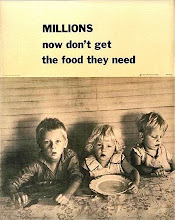Higher education is central to upward mobility, which is in turn the core of the American Dream. There's been a fair amount of press coverage lately on threats to our collective dream. Many students, particularly minorities, do not complete their degrees. Student indebtedness is rising. The Ivy League doesn't merit serious consideration by 99+% of America's youth.
The debate often goes astray, even in the web's most enlightened community, where recent discussion of "white privilege" needed a reminder that the real issue is bigger, broader and deeper. This post repeats a comment added to that discussion, which you can read here.
*************************************************
The problem with a concept like white privilege is the word white. The question or issue is framed in context of a single, supposedly monolithic group. All white people are not created equal. Their ancestry differs as much as does the history of Europe. Their American experience is strongly influenced by varying degrees of temporal dislocation from immigrant forebears. The tough question is simply ...is there privilege in America? Easy answer, the tough part is then what?
A look at Ivy League student demographics would show steady progress towards ethnic diversification. What about economic diversification? If race and ethnicity are tossed aside and "privilege" is defined along economic lines, the pattern of inherited advantage is clear. I'd argue the economic elites have sought cover under America's public obsession with race. From their perspective, dealing with a black girl from the south side of Chicago who had the temerity to instruct her French instructor (as a sophomore) is easier than combing West Virginia, Arkansas, Alabama or Mississippi to find a rare, white scholar.
Black affirmative action provided an unintentional diversion from a legacy of prejudice towards disadvantaged whites, not limited to obvious social and economic disadvantage found in the 12 States of Stupid. Higher education financing has been a rigged game from jump. Solidly middle-class families in New York and New Jersey with kids who are merely intelligent have also been locked out of the Ivy League.The issue really is about fairness, meritocracy and wealth redistribution.
"Not for profit" is a convenient misnomer. It means profits are not subject to income tax, as opposed to legislation that specifies an organization shouldn't make a profit. Rich, private universities not only turn a profit on education services, they also reap income from endowments provided by generations of rich alumni. The system is aided and abetted by our tax code to further concentrate wealth and power according to inherited privilege. Scholarships are simply the cost of good public relations. Do you know many impoverished or struggling Ivy League graduates over the age of 35?
Here's a blindingly simple fix that rebalances American higher education towards its greatest strengths. State colleges and universities are the true engines of upward mobility. State university systems are under tremendous, long-term financial strain. Instead of cutting back on the only education opportunity available to the American majority, why don't we boost funding to public higher education by killing off the not-for-tax status of private universities? This will work if such change also mandates payment of increased tax revenues into a trust fund that is disbursed solely to public colleges and universities.
The elites can continue to drop $200,000 for a Columbia undergraduate degree, Columbia will pay taxes on its income (including investment income from its endowments) to New York and the Federal government and Federal receipts will be apportioned back to state institutions based on relative full-time-equivalent enrollment (or some such). This solution would create a color-blind, elective wealth transfer that balances education, opportunity and heredity without need of commissions, investigations or recriminations.
Who votes for democracy in higher education?
Thanks!
8 years ago




















+breed+danger+6x8.jpg)











+5x7.jpg)


No comments:
Post a Comment